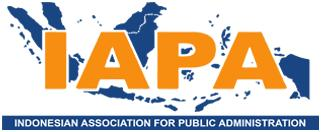Behavioral Determinants of Business Continuity in Public Drinking Water Utilities (PDAM) in East Nusa Tenggara of Indonesia
Abstrak
The research pointed out the escalating challenges faced by the Indonesian Public Drinking Water Utilities (PDAMs) in ensuring water access, emphasizing the need for sustainable practices. The primary research problems are deliberately around understanding how CSR practices, corporate culture, and leadership styles impact business continuity in the context of water management utilities. The objective is to explore the relationships between CSR, corporate culture, leadership styles, and business continuity in PDAMs. The data were collected through structured self-administered questionnaires distributed to 100 employees of PDAM in East Nusa Tenggara of Indonesia, assessing their perceptions of CSR practices, corporate culture, leadership styles, and business continuity. The Likert-type scale responses were analyzed, revealing significant associations between these variables. Findings indicate that CSR initiatives positively contribute to business continuity, aligning with the leader's vision of community impact. The unique corporate culture, rooted in strong spiritual values, fosters a distinct work atmosphere and influences community habits. Additionally, a distinctive leadership style, treating employees as family, positively impacts employee attitude and business sustainability. While providing valuable insights, the study acknowledges limitations in generalizability and recommends further research for a comprehensive understanding of these dynamics.
Kata Kunci
Teks Lengkap:
PDFReferensi
Abdelfattah, I., & El-Shamy, A. M. (2024). Review on the escalating imperative of zero liquid discharge (ZLD) technology for sustainable water management and environmental resilience. Journal of Environmental Management, 351(December 2023), 119614. https://doi.org/10.1016/j.jenvman.2023.119614
Atmadja, A. T., Adi Kurniawan Saputra, K., & Manurung, D. T. H. (2019). Proactive Fraud Audit, Whistleblowing, and Cultural Implementation of Tri Hita Karana for Fraud Prevention. European Research Studies Journal, XXII(3), 201–214.
Bager, S. L., & Lambin, E. F. (2020). Sustainability strategies by companies in the global coffee sector. Business Strategy and the Environment, 29(8), 3555–3570.
Bian, J., Liao, Y., Wang, Y.-Y., & Tao, F. (2021). Analysis of firm CSR strategies. European Journal of Operational Research, 290(3), 914–926.
Cosgrove, W. J., & Loucks, D. P. (2015). Water management: Current and future challenges and research directions. Water Resources Research, 51, 4823–4839. https://doi.org/10.1002/ 2014WR016869
Costa, I., Riccotta, R., Montini, P., Stefani, E., de Souza Goes, R., Gaspar, M. A., Martins, F. S., Fernandes, A. A., Machado, C., & Loçano, R. (2022). The degree of contribution of digital transformation technology on company sustainability areas. Sustainability, 14(1), 462.
Elmaghrabi, M. E. (2021). CSR committee attributes and CSR performance: UK evidence. Corporate Governance: The International Journal of Business in Society, 21(5), 892–919.
Fallah Shayan, N., Mohabbati-Kalejahi, N., Alavi, S., & Zahid, M. A. (2022). Sustainable development goals (SDGs) as a framework for corporate social responsibility (CSR). Sustainability, 14(3), 1222.
Fatima, T., & Elbanna, S. (2023). Corporate social responsibility (CSR) implementation: A review and a research agenda towards an integrative framework. Journal of Business Ethics, 183(1), 105–121.
Fukuda, K., & Ouchida, Y. (2020). Corporate social responsibility (CSR) and the environment: Does CSR increase emissions? Energy Economics, 92, 104933.
Fulazzaky, M. A. (2014). Challenges of integrated water resources management in Indonesia. Water (Switzerland), 6(7), 2000–2020. https://doi.org/10.3390/w6072000
Gude, V. G., & Muire, P. J. (2021). Preparing for outbreaks – Implications for resilient water utility operations and services. Sustainable Cities and Society, 64(October 2020), 102558. https://doi.org/10.1016/j.scs.2020.102558
Kevany, K., & Huisingh, D. (2013). A review of progress in the empowerment of women in rural water management decision-making processes. Journal of Cleaner Production, 60, 53–64. https://doi.org/10.1016/j.jclepro.2013.03.041
Lebel, L., Grothmann, T., & Siebenhüner, B. (2010). The role of social learning in adaptiveness: Insights from water management. International Environmental Agreements: Politics, Law and Economics, 10(4), 333–353. https://doi.org/10.1007/s10784-010-9142-6
Lukin, E., Krajnović, A., & Bosna, J. (2022). Sustainability strategies and achieving SDGs: A comparative analysis of leading companies in the automotive industry. Sustainability, 14(7), 4000.
Manurung, D. T. H., Hidayah, N., Setiany, E., Saputra, K. A. K., & Hapsari, D. W. (2022). Does Carbon Performance and Green Investment Affect Carbon Emissions Disclosure? Journal of Environmental Accounting and Management, 10(4), 335–344. https://doi.org/10.5890/JEAM.2022.12.001
Mashur, D., Rusli, Z., Zulkarnaini, Sadad, A., & Meiwanda, G. (2024). Public Service Management in Corporate Social Responsibility PT. Pertamina International Refinery Unit II Sungai Pakning. Jurnal Manajemen Pelayanan Publik, 8(1), 130–143.
Mukarram, M. M. T., Kafy, A. Al, Mukarram, M. M. T., Rukiya, Q. U., Almulhim, A. I., Das, A., Fattah, M. A., Rahman, M. T., & Chowdhury, M. A. (2023). Perception of coastal citizens on the prospect of community-based rainwater harvesting system for sustainable water resource management. Resources, Conservation, and Recycling, 198(August), 107196. https://doi.org/10.1016/j.resconrec.2023.107196
Nelson, J. (2008). CSR and Public Policy.
Pahl-Wostl, C., Sendzimir, J., Jeffrey, P., Aerts, J., Berkamp, G., & Cross, K. (2007). Managing change toward adaptive water management through social learning. Ecology and Society, 12(2). https://doi.org/10.5751/ES-02147-120230
Papoutsi, A., & Sodhi, M. S. (2020). Does disclosure in sustainability reports indicate actual sustainability performance? Journal of Cleaner Production, 260, 121049.
Patalas-Maliszewska, J., & Łosyk, H. (2020). An approach to assessing sustainability in the development of a manufacturing company. Sustainability, 12(21), 8787.
Purnomo, B. R., Eliyana, A., & Surya, W. A. (2020). The effect of transformational leadership on employee job satisfaction with the meditation of trust to supervisors. Systematic Reviews in Pharmacy, 11(9), 676–686. https://doi.org/https://doi.org/10.31838/srp.2020.9.99
Rhou, Y., & Singal, M. (2020). A review of the business case for CSR in the hospitality industry. International Journal of Hospitality Management, 84, 102330.
Rossi, M., Cappelletti, F., & Germani, M. (2022). Design for environmental sustainability: collect and use company information to design green products. Procedia CIRP, 105, 823–828.
Saputra, K. A. K., Manurung, D. T. H., Rachmawati, L., Siskawati, E., & Genta, F. K. (2021). Combining the concept of green accounting with the regulation of prohibition of disposable plastic use. International Journal of Energy Economics and Policy, 11(4), 84–90. https://doi.org/10.32479/ijeep.10087
Saputra, K. A. K., Subroto, B., Rahman, A. F., & Saraswati, E. (2022). Eco-Efficiency and Energy Audit to Improve Environmental Performance: An Empirical Study of Hotels in Bali-Indonesia. International Journal of Energy Economics and Policy, 12(6), 175–182. https://doi.org/10.32479/ijeep.13565
Saputra, K. A. K., Subroto, B., Rahman, A. F., & Saraswati, E. (2023). Mediation Role of Environmental Management Accounting on the Effect of Green Competitive Advantage on Sustainable Performance. Journal of Sustainability Science and Management, 18(2), 103–115. https://doi.org/10.46754/jssm.2023.02.008
Sara, I. M., Udayana Putra, I. B., Kurniawan Saputra, K. A., & Jaya Utama, I. W. K. (2023). Financial literacy, morality, and organizational culture in preventing financial mismanagement: A study on village governments in Indonesia. Cogent Business and Management, 10(1), 0–15. https://doi.org/10.1080/23311975.2023.2166038
Schiuma, G., Schettini, E., Santarsiero, F., & Carlucci, D. (2022). The transformative leadership compass: six competencies for digital transformation entrepreneurship. International Journal of Entrepreneurial Behaviour and Research, 28(5), 1273–1291. https://doi.org/10.1108/IJEBR-01-2021-0087
Shah, S. H. A., Fahlevi, M., Jamshed, K., Aman, N., Rafiq, N., Jermsittiparsert, K., & Aljuaid, M. (2023). Sustaining the Earth: Unraveling the Synergy of Workplace Spirituality, Responsible Leadership, and Pro-Environmental Behavior in Pakistan’s SMEs. Psychology Research and Behavior Management, 16, 3075–3093. https://doi.org/10.2147/PRBM.S413606
Srivastava, A., & Maity, R. (2023). Assessing the Potential of AI–ML in Urban Climate Change Adaptation and Sustainable Development. Sustainability, 15(23), 16461. https://doi.org/10.3390/su152316461
Supangat, A. B., Basuki, T. M., Indrajaya, Y., Setiawan, O., Wahyuningrum, N., Purwanto, Putra, P. B., Savitri, E., Indrawati, D. R., Auliyani, D., Nandini, R., Pramono, I. B., Nugroho, A. W., Wuryanta, A., Adi, R. N., Harjadi, B., Cahyono, S. A., Lastiantoro, C. Y., Handayani, W., … Anggraeni, I. (2023). Sustainable Management for Healthy and Productive Watersheds in Indonesia. Land, 12(11), 1–34. https://doi.org/10.3390/land12111963
Suriyankietkaew, S., Krittayaruangroj, K., & Iamsawan, N. (2022). Sustainable Leadership Practices and Competencies of SMEs for Sustainability and Resilience: A Community-Based Social Enterprise Study. Sustainability (Switzerland), 14(10), 1–36. https://doi.org/10.3390/su14105762
Suwandi, I., Arifianti, R., & Rizal, M. (2019). Pelaksanaan Prinsip-Prinsip Good Corporate Governance (GCG) Pada PT. Asuransi Jasa Indonesia (JASINDO). Jurnal Manajemen Pelayanan Publik, 2(1), 45. https://doi.org/10.24198/jmpp.v2i1.21559
Tamvada, M. (2020). Corporate social responsibility and accountability: a new theoretical foundation for regulating CSR. International Journal of Corporate Social Responsibility, 5(1), 1–14.
van Zanten, J. A., & van Tulder, R. (2021). Analyzing companies’ interactions with the Sustainable Development Goals through network analysis: Four corporate sustainability imperatives. Business Strategy and the Environment, 30(5), 2396–2420.
Velte, P. (2022). Meta-analyses on corporate social responsibility (CSR): a literature review. Management Review Quarterly, 72(3), 627–675.
Wicaksono, A., & Kang, D. (2019). Nationwide simulation of water, energy, and food nexus: Case study in South Korea and Indonesia. Journal of Hydro-Environment Research, 22(August), 70–87. https://doi.org/10.1016/j.jher.2018.10.003
Wijethilake, C., Upadhaya, B., & Lama, T. (2023). The role of organizational culture in organizational change towards sustainability: evidence from the garment manufacturing industry. Production Planning and Control, 34(3), 275–294. https://doi.org/10.1080/09537287.2021.1913524
Wolff, S., Brönner, M., Held, M., & Lienkamp, M. (2020). Transforming automotive companies into sustainability leaders: A concept for managing current challenges. Journal of Cleaner Production, 276, 124179.
Yusuf, M., & Purwandani, I. (2020). Ecological politics of water: the ramifications of tourism development in Yogyakarta. South East Asia Research, 28(3), 327–343. https://doi.org/10.1080/0967828X.2020.1821580
DOI: https://doi.org/10.24198/jmpp.v8i2.53170
Refbacks
- Saat ini tidak ada refbacks.
Jurnal Manajemen Pelayanan Publik Indexed By:



This work is licensed under a Creative Commons Attribution-ShareAlike 4.0 International License.


















21.png)



.png)